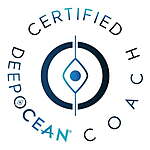Resume: The 10 Most Common Mistakes – Dos & Don'ts
If you are reading this, we probably just spoke at the Karrieretag in Hamburg. Here are some dos and don´ts for your CV in Germany.
1. Typos and Grammatical Errors
DON'T: Neglect to proofread your resume and rely solely on autocorrect. Errors in company names or contact persons are particularly embarrassing.
DO: Proofread your resume several times and carefully. Ask a second person (friends, family) to review it as well. Tools like Grammarly or Hemingway Editor can provide additional help.
2. Impersonal One-Size-Fits-All Resume
DON'T: Create a single, generic resume and send it to dozens of companies. This signals a lack of interest and effort.
DO: Tailor your resume for each individual application. Highlight the most relevant qualifications and experiences for the specific position. Use keywords from the job description to be positively evaluated by Applicant Tracking Systems (ATS).
3. Focusing on Duties Instead of Accomplishments
DON'T: Merely list your daily tasks and responsibilities (e.g., "Responsible for customer support"). This is not impactful.
DO: Present concrete achievements and measurable results. Instead of just describing your duties, show the value you brought to the company (e.g., "Increased customer satisfaction by 15% by implementing a new feedback system").
4. Incorrect or Outdated Contact Information
DON'T: Provide outdated or incorrect contact details. A wrong digit in your phone number or a typo in your email address can make you unreachable for an interview.
DO: Double- and triple-check all contact information (phone number, email address, address). Ensure your email address is professional (firstname.lastname@email.com) and that you check it regularly.
5. Irrelevant Information
DON'T: Clutter your resume with irrelevant hobbies (e.g., "Watching TV"), outdated school grades, or skills that don't match the job. This distracts from the essentials.
DO: Only include information that is relevant to the desired position. If you list hobbies, they should relate to the job or highlight positive traits like teamwork (team sports) or strategic thinking (chess).
6. Gaps and Lies
DON'T: Hide, embellish, or lie about gaps in your resume. This destroys trust and can lead to termination even years later.
DO: Proactively and honestly explain gaps (of 2-3 months or more). A professional reorientation, further education, or travel can be presented plausibly and positively. Instead of "unemployed," write "seeking new opportunities."
7. Poor Layout and Formatting
DON'T: Use a cluttered, overloaded layout with multiple fonts and sizes. This looks unprofessional and is hard to read.
DO: Choose a clear, structured, and consistent layout. Use a readable font (e.g., Arial, Calibri, Times New Roman) in an appropriate size (10-12pt). Use enough white space to improve readability.
8. Incorrect Length
DON'T: Write a novel or squeeze a resume onto one page when you have more relevant experience. Both are frustrating for recruiters.
DO: Adjust the length of your resume to your professional experience. For entry-level professionals, one page is ideal. With several years of experience, up to two pages are acceptable. Every piece of information should add value.
9. Unprofessional Email Address or Photo
DON'T: Use a non-serious email address (e.g., "cutiepie99@email.com") or a vacation photo/selfie. This creates an unprofessional first impression.
DO: Use a professional email address (firstname.lastname@provider.com). If you use a photo (note: this is less common and sometimes discouraged in countries like the US/UK), it should be a professional headshot taken by a photographer that fits the industry and position.
10. Outdated Terms and Missing Keywords
DON'T: Use outdated terms like "EDP skills" when the job description talks about "IT skills." This can cause Applicant Tracking Systems (ATS) to filter out your resume.
DO: Adopt the language of the job description and use relevant keywords. Tailor your resume to the specific requirements and terminology of the posting to increase your chances with automated pre-screening.
And one more thing: Poor translations!
DON'T: Literally translate your English job titles into German without understanding German hierarchy structures and corporate culture. This often leads to inflated German titles that don't match your actual level of responsibility, creating unrealistic salary expectations and confusion among German HR professionals.
DO: Research the appropriate German equivalent for your position by comparing your actual responsibilities, team size, and decision-making authority with German job descriptions. Consult with German HR experts, career advisors, or professionals in your field to ensure accurate translation of your role.





